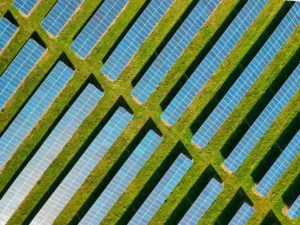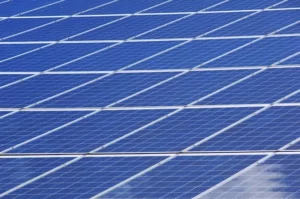As the saying goes, "An ounce of prevention is worth a pound of cure," and this couldn't ring truer when it comes to pigeon-proofing your solar panels. You've invested a good chunk of change into your solar energy system, and the last thing you want is for pigeons to compromise its efficiency or cause damage. The cost of pigeon-proofing can vary widely based on several factors, including the size of your system and the method you choose to deter these feathery visitors. Whether you're considering DIY solutions or professional services, it's crucial to weigh the initial expenses against the potential savings in maintenance and efficiency losses. Stick around to explore the nuances of cost analysis, installation, and long-term benefits, ensuring you make an informed decision that protects your investment for years to come.
Key Takeaways
- The cost of pigeon proofing solar panels varies based on materials and installation size.
- Professional installation may offer warranties and reduce long-term maintenance costs.
- DIY pigeon proofing can be less expensive but requires careful material selection and safety considerations.
- Regular maintenance and choosing durable materials can prolong the effectiveness of pigeon proofing measures.
Understanding Pigeon Proofing
Before delving into the specifics of pigeon proofing solar panels, it's crucial to understand that this process involves installing barriers or deterrents to prevent pigeons from nesting under or around your solar energy installations. Familiarizing yourself with pigeon behavior is essential, as these birds seek out sheltered spots to roost and reproduce, making the underbelly of solar panels an ideal target.
You've got to consider the variety of proofing materials available to tackle this issue effectively. Stainless steel mesh is a popular choice, offering durability and resistance to harsh weather conditions. It's designed to create a physical barrier without compromising the functionality or airflow of your solar panels. Another option is the use of spikes, which deter pigeons from landing or nesting in the area.
Utilizing a combination of these materials can yield the best results, tailored to your specific situation. It's about creating an environment that's inhospitable to pigeons while ensuring the longevity and efficiency of your solar panels. The technicality of the installation process means that understanding the nuances of both pigeon behavior and the characteristics of different proofing materials is critical for a successful pigeon proofing strategy.
Cost Analysis
When considering the pigeon proofing of your solar panels, it's essential to understand that costs can vary significantly depending on several factors, including the size of your installation and the materials chosen. The choice of material is pivotal, as it directly influences both the durability and effectiveness of the pigeon proofing solution. Seasonal factors can also play a role, potentially affecting the availability and price of materials and services. To give you a clearer picture, here are some key considerations that impact the cost:
- Material Choices: The selection of materials, ranging from plastic spikes to stainless steel mesh, can greatly influence the overall expense. Higher quality materials typically command a higher price but offer better longevity and protection.
- Size of Installation: The larger your solar panel array, the more materials and time are required for pigeon proofing, thus increasing the cost.
- Seasonal Factors: Demand for pigeon proofing services can fluctuate with the seasons, potentially affecting prices during peak times.
- Accessibility: Hard-to-reach installations may require special equipment or additional labor, impacting the cost.
- Preventative Measures: Incorporating additional deterrents or preventative measures can add to the initial cost but may save money in the long run by ensuring a more comprehensive solution.
Understanding these factors can help you navigate the cost complexities of pigeon proofing your solar panels.
Installation and Labor Charges
Having considered the various factors that influence the cost of pigeon proofing your solar panels, it's important to also focus on the specific installation and labor charges involved in implementing these solutions. These charges can vary significantly based on the complexity of the installation, the material quality used for pigeon proofing, and notably, your geographic location.
The quality of materials chosen for pigeon proofing plays a crucial role in determining the installation costs. Higher-quality materials, which offer better durability and effectiveness against pigeons, often require more specialized installation techniques, consequently driving up labor costs. It's essential to strike a balance between material quality and cost efficiency to ensure you're getting the best value for your investment.
Moreover, geographic location significantly impacts labor charges. In areas with a high demand for solar panel pigeon proofing services, you might find that labor costs are higher due to the increased demand for skilled labor. Conversely, in regions where such services are less common, you might encounter lower labor charges but potentially face challenges finding experienced professionals.
Understanding these factors is crucial in budgeting accurately for the installation and labor charges associated with pigeon proofing your solar panels. It's advisable to obtain multiple quotes to compare and ensure you're not only getting competitive pricing but also quality service.
DIY Vs Professional Services
Choosing between DIY and professional services for pigeon proofing your solar panels requires careful consideration of cost, skill level, and the potential risks involved. If you're leaning towards a DIY approach, it's crucial to understand that proper tool selection and implementing safety measures are non-negotiable. You'll need to invest in specific tools and personal protective equipment to ensure the job is done safely and effectively. On the other hand, hiring professionals might seem costlier upfront but comes with the assurance of quality workmanship and experience in dealing with unforeseen complications.
Here are key factors to weigh in:
- Tool Selection: DIY requires purchasing or renting the right tools, which could add to your expenses.
- Safety Measures: Professionals are trained to work safely on roofs, significantly reducing the risk of accidents.
- Experience Level: Mistakes in DIY projects can lead to damage, whereas professionals have the know-how to avoid common pitfalls.
- Time Investment: DIY projects can be time-consuming, especially without prior experience.
- Warranty and Guarantees: Professional services often come with warranties that DIY efforts do not offer, providing long-term peace of mind.
Maintenance and Longevity
While considering the initial setup of pigeon proofing for your solar panels, it's equally crucial to factor in the maintenance and longevity of the chosen solution to ensure optimal performance and durability over time. Panel durability plays a significant role in the long-term effectiveness of pigeon proofing measures. High-quality materials resistant to UV, weather, and pest damage can maintain their integrity, ensuring pigeons cannot bypass these barriers over years of exposure.
Moreover, the cleaning frequency of your solar panels should not be overlooked. Pigeon presence often leads to an accumulation of droppings, which can significantly reduce the efficiency of your solar panels by blocking sunlight. Regular cleaning schedules are necessary to maintain energy output and panel longevity. Some pigeon proofing solutions allow for easy removal and reinstallation, facilitating hassle-free panel cleaning.
It's important to choose a pigeon proofing method that doesn't compromise the warranty of your solar panels. Inadequate installation techniques can cause damage, voiding warranties, and affecting panel durability. Therefore, opting for professional installation and considering the maintenance implications of the pigeon proofing solution are key to ensuring the longevity of your solar energy investment.
Conclusion
In conclusion, pigeon-proofing your solar panels is a crucial step in protecting your investment. The total cost varies, depending on whether you opt for DIY solutions or professional services. While DIY might seem cost-effective, professional installation ensures durability and effectiveness. Remember, installation and labor charges will significantly affect the overall cost. Regular maintenance further extends the longevity of the pigeon-proofing measures, making it a wise decision for long-term solar panel efficiency and performance.



